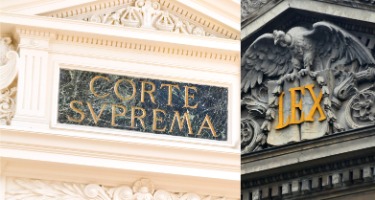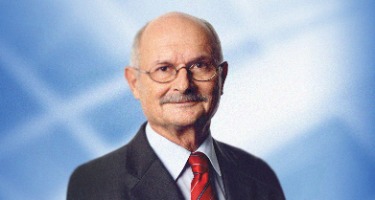How the dismissal of a bankruptcy case impacts creditors’ actions
If your client’s bankruptcy case gets dismissed, either for failure to abide by a Chapter 13 plan or follow through with other obligations, creditors are positioned to go after the debtor’s assets, unless a stay is ordered or reinstated. The rules regarding what happens after the case is dismissed and how to obtain a stay are convoluted, however, creating traps for unwary practitioners.
For example, if your client’s Chapter 13 case was dismissed for non-payment and your client wants his case reinstated, you should know what to tell him may happen in the meantime. Say your client’s Chapter 11 case was dismissed for failure to timely file a plan, and you are filing a motion to vacate the order of dismissal. You need to know what else to do to protect the debtor’s assets.
Many questions may arise when cases are dismissed. If your client is a secured creditor and the debtor’s bankruptcy case has been dismissed, can the debtor’s car be repossessed and sold? Can foreclosure resume on the debtor’s real estate? If your client is a landlord with the debtor as a tenant, can the debtor be evicted once the case is dismissed? Is there a period of time the creditor has to wait before taking any action against the debtor? What impact does the debtor’s motion to reconsider and vacate the order of dismissal have on the rights of creditors to act against the debtor or his property?
A short examination of these issues will dispel some of the misconceptions practitioners may have about what happens when a WHAT STAY APPLIES AFTER A BANKRUPTCY CASE IS DISMISSED?
The short answer to this question is that no stay applies. Once the case is dismissed, the automatic stay of 11 U.S.C. § 362(a) terminates, pursuant to 11 U.S.C. § 362(c)(2)(B). In pertinent part, 11 U.S.C. § 362(c)(2) provides:
(2) the stay of any other act under subsection (a) of this section continues until the earliest of:
(A) the time the case is closed;
(B) the time the case is dismissed; or
(C) if the case is a case under chapter 7 of this title concerning an individual or a case under chapter 9, 11, 12, or 13 of this title, the time a discharge is granted or denied
Some attorneys mistakenly believe a temporary stay of the dismissal order arises under Federal Rule of Bankruptcy Procedure 7062 and Federal Rule of Civil Procedure 62(a). Rule 7062 simply says Rule 62
“applies in adversary proceedings,” and Rule 62(a) says, “Except as stated in this rule, no execution may issue on a judgment, nor may proceedings be taken to enforce it, until 14 days have passed after its entry.”
Therefore, Rule 62(a) automatically applies a 14-day stay to the execution or enforcement of certain judgments in adversary proceedings. That seems straightforward enough, but does it apply to bankruptcy dismissals? Federal Rule of Bankruptcy Procedure 9014(c), which makes certain rules of civil
By John B. Butler III, Esq. bankruptcy case is dismissed.
John B. Butler III was law clerk to U.S. Bankruptcy Judge J. Bratton Davis, a standing Chapter 13 trustee for 15 years and an adjunct professor of bankruptcy law at the University of South Carolina School of Law. He is the author of the two-volume “Bankruptcy Handbook” published by Knowles Publishing and specializes in representing creditors in bankruptcy cases in South Carolina.
© 2013 Thomson Reuters
procedure applicable in contested matters,1 specifically does not apply Rule 7062 in contested matters, unless the court orders otherwise.
As a result, courts have been consistent in finding neither the automatic stay2 of 11 U.S.C. § 362(a) nor the stay of Rule 70623 applies after dismissal of a bankruptcy case.
WHAT ACTIONS MAY CREDITORS TAKE AFTER A CASE IS DISMISSED?
Courts4 have also been uniform in finding a creditor may pursue its legal and contractual rights against a debtor whose case has been dismissed, unless the court enters a specific order staying any action against the debtor or the debtor’s property.
After dismissal of a case, creditors have proceeded with foreclosure actions,5 repossession of a car6 and eviction.7 Actions taken after reinstatement of the bankruptcy case and the concurrent reimposition of the automatic stay are, of course, violative of the automatic stay once it is reimposed.8
WHAT EFFECT DOES A MOTION TO RECONSIDER THE DISMISSAL OF THE CASE HAVE ON ANY STAY?
A motion to reconsider the dismissal of the case does not prolong any stay that may have existed while the case was pending. Neither a motion under Federal Rule of Civil Procedure 59(e) nor under Federal Rule of Civil Procedure 60(b) stays any action a creditor may take after dismissal of the case.10
A debtor who is not appealing11 the dismissal of his case but desires to protect his assets while waiting for reinstatement of his case must obtain reinstatement of the case on an emergency basis, before the creditor takes action. Otherwise, the debtor must obtain an order from the bankruptcy court specifically staying any actions until the case is reinstated. As one court stated:
The debtors were not attempting a hollow reinstatement of their dismissed case; they were obviously attempting
AUGUST 1, 2013 n VOLUME 10 n ISSUE 7 | 3
to “reinstate” the automatic stay. They did not seek extraordinary relief to accomplish that result. Knowing that a foreclosure sale was scheduled, the debtors’ safest course after dismissal of a chapter 13 case would have been to file an adversary proceeding and motion seeking a temporary restraining order to prevent the foreclosure sale from going forward while their reinstatement motion was pending.12
Courts have been consistent in finding neither the
automatic stay of 11 U.S.C.
§ 362(a) nor the stay of
Federal Rule of Bankruptcy
Procedure 7062 applies after dismissal of a bankruptcy case.
IS THE REINSTATEMENT OF THE STAY RETROACTIVE?
Most courts hold that later reinstatement of the case does not retroactively reinstate the automatic stay during the period between when the case was dismissed and when it was reinstated.13 In fact, some courts have held it was an error for a bankruptcy court to reinstate the automatic stay retroactively on acts taken during that period.14
CONCLUSION
The dismissal of a case that a debtor wants to reinstate is a perilous situation for both the debtor’s attorney and the creditor’s attorney. Knowing the applicable law and taking quick action may well be the difference between your client retaining or losing his property. WJ
NOTES
1 The Advisory Committee Note to Federal Rule of Bankruptcy Procedure 9014 elaborates on what constitutes a contested matter: “Whenever there is an actual dispute, other than an adversary proceeding, before the bankruptcy court, the litigation to resolve that dispute is a contested matter. For example, the filing of an objection to a proof of claim, to a claim of exemption, or to a disclosure statement creates a dispute which is a contested matter.”
4 | WESTLAW JOURNAL n BANKRUPTCY
2 Fish Mkt. Nominee Corp. v. Pelofsky, 72 F.3d 4, 6 (1st Cir. 1995); In re De Jesus Saez, 721 F.2d 848, 851 (1st Cir. 1983); In re Singleton, 358 B.R. 253, 261 (D.S.C. 2006); In re Heghmann, 316 B.R. 395, 401-402 (B.A.P. 1st Cir. 2004) aff’d, 326
F. Supp. 2d 227 (D.N.H. 2004); In re Webb Mtn LLC, 414 B.R. 308, 335 (Bankr. E.D. Tenn. 2009); In re Hill, 305 B.R. 100, 104-05 (Bankr. M.D. Fla. 2003); In re Jennings, 2001 WL 1806980, at *3 (Bankr. D.S.C. 2001); In re Frank, 254 B.R. 368, 374 (Bankr. S.D. Tex. 2000); In re Weston, 101 B.R. 202, 205 (Bankr. E.D. Cal. 1989), aff’d, 123 B.R. 466 (B.A.P. 9th Cir. 1991), aff’d, 967 F.2d 596 (9th Cir. 1992).
3 Fish Mkt., 72 F.3d at 6-7; In re Heghmann, 316 B.R. 395; In re Hill, 305 B.R. 100; In re Rivera, 280
B.R. 699, 701 (Bankr. S.D. Ala.2001); In re Garcia, 2005 WL 2452122, at *1 (Bankr. S.D. Fla. 2005); In re Frank, 254 B.R. at 374; In re Weston, 101 B.R. at 205.
4
In re Singleton, 358 B.R. 253 (creditor did not violate any stay by proceeding with foreclosure sale after dismissal of Chapter 13 case); In re Heghmann, 316 B.R. 395 (creditor did not violate any stay by obtaining writ of possession after one case was filed and before the next case was filed); In re Hill, 305 B.R. 100 (creditor did not violate any stay by holding foreclosure sale after chapter 13 case was dismissed and before it was reinstated); In re Frank, 254 B.R. 368 (creditor did not violate any stay by repossessing and selling car after dismissal of Chapter 13 case and before emergency hearing was held on debtor’s motion to reinstate case; creditor, however, was liable for damages for improper notice of sale under state law).
5 In re Singleton, 358 B.R. 253; In re Hill, 305
B.R. 100; In re Johnson, 1999 WL 528653 (Bankr.
W.D. Tenn. 1999).
6 In re Garcia, 2005 WL 2452122; In re Rivera, 280 B.R. 699; In re Jennings, 2001 WL 1806980; In re Frank, 254 B.R. 368.
7 In re Heghmann, 316 B.R. 395.
8 In re Diviney, 225 B.R. 762, 771 (B.A.P. 10th Cir. 1998) (“We hold that reinstatement of the third case restored the automatic stay as of August 26, 1996, so the stay was in effect on September 7, 1996, when the bank repossessed the car.”); In re Webb Mtn, 414 B.R. at 339 (“Although the automatic stay terminated by operation of law upon entry of the dismissal order, it went into effect once again when the plaintiff’s case was reinstated, following its successful appeal of the dismissal order.”); In re Jennings, 2001 WL 1806980 at *3 (“However, by reinstating debtors’ case, the court simultaneously reimposed the automatic stay from the date of reinstatement.”).
9 In re Singleton, 358 B.R. at 258 (“Accordingly, the court considers Singleton’s motion to vacate the dismissal … to determine whether Rule 60(b) authorized the bankruptcy court to vacate its dismissal order.”); In re Garcia, 434 B.R. 638, 643 (Bankr. D.N.M. 2010) (“The motion to vacate is really in the nature of a motion for reconsideration. Although the federal rules do not recognize a motion for reconsideration, these motions are dealt with under either Rule 59 or 60.”); In re Hill, 305 B.R. at 108 (“A motion to vacate an order of dismissal of a bankruptcy case, such as the one filed by the debtor in this case, has generally been considered as a motion pursuant to Rule 9024.”); In re Johnson, 1999 WL 528653, at *2 (“The debtors’ motion is styled one to reinstate the case … but the effect of such a motion is to seek the remedy of vacating the dismissal order; essentially, this is relief under Fed. R. Bankr. P. 9024.”).
10 In re Hill, 305 B.R. at 108; In re Garcia, 2005 WL 2452122 at *1.
11 With limited exceptions, a party’s appeal of an order dismissing a case deprives the bankruptcy court from hearing any matters on the case while the appeal is pending. See Cotton v. Stalzer (In re Cotton), 250 F. App’x 968, 969-70 (11th Cir. 2007) (“In this case, the bankruptcy court dismissed the Chapter 7 case while the appeal of its earlier order denying Cotton’s motion for the voluntary dismissal of the Chapter 13 case and converting it to a Chapter 7 case was pending in the district court. … [W]e hold that the bankruptcy court lacked jurisdiction to enter the order of dismissal.”); Neary v. Padilla (In re Padilla), 222 F.3d 1184, 1190 (9th Cir. 2000) (“[W]e hold that the bankruptcy court lacked jurisdiction to proceed with Padilla’s bankruptcy during the pendency of this appeal.”).
12 In re Johnson, 1999 WL 528653 at *2. See also, In re Hill, 305 B.R. at 110; In re Garcia, 2005 WL 2452122 at *2 (“Accordingly, the only stay that could have prevented Trans World from repossessing the truck between the time that the order of dismissal was entered and the time that the court reinstated the case would have been one entered by separate order of court. No such stay order had been entered as of the date of the repossession, and as discussed above, the Section 362 automatic stay was no longer in effect when Trans World repossessed the truck.”); In re Weston, 101 B.R. at 205 (“[T]his court must find that the ten-day stay within those rules was not intended to apply to orders involving the dismissal of bankruptcy petitions without a contrary order of the court.”).
13 Nicholson v. Nagel (In re Nagel), 245 B.R.
657,662 (D. Ariz. 1999); In re Hill, 305 B.R. at 10405; In re Frank, 254 B.R. at 374; In re Jennings, 2001 WL 1806980 at *3; In re Johnson, 1999 WL 528653 at *4.
In re Singleton, 358 B.R. at 261 (“In this case … the court finds that the bankruptcy court had no authority to re-impose the automatic stay on property no longer included in the bankruptcy estate.”); In re Nagel, 245 B.R. at 662 (“A review of the case law provided by the parties and the court’s own research reveals no basis in law for the proposition that the automatic stay continues after dismissal of a case. A retroactive reinstatement of the automatic stay is not consistent with this conclusion.”); In re Sewell, 345 B.R. 174, 180 (B.A.P. 9th Cir. 2006) (“We also question whether retroactive imposition of the automatic stay as if it had never terminated





















